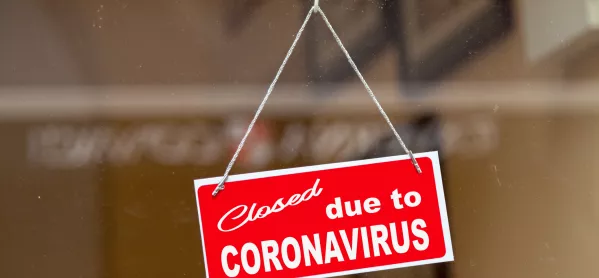If I had written this blog last week, it might have read very differently! In fact, when a message from Tes came through, asking me if I would consider writing a blog about how the response to the coronavirus pandemic has felt from a principal’s perspective, I think I shouted at the phone: "It feels sh*t!" Apologies, Tes – it was a particularly busy moment.
On Friday 13 March, concerned about the virus outbreak and the impact it might have on students and staff, we held a college leadership team meeting. In it, we focused on a critical incident plan for potentially moving college operations online and remotely, should we need to close college buildings.
Coronavirus: Scottish FE stops face-to-face classes
News: How colleges can prepare for coronavirus closure
Live blog: Coronavirus and education
We discussed this in some detail and emphasised the need to establish communication channels for students and staff, as well as remote working practices. We had already determined that we could continue to pay students, staff and suppliers remotely and had had some "practice runs" at this.
A meeting with principals, Covid-19 contacts, the Scottish Funding Council and the Scottish government was held late on Friday afternoon and information and updates were provided.
Then, on Monday 16 March, everything changed.
No more face-to-face time
The senior leadership team met in the morning and agreed that, in the light of the guidance at the time, we would continue with classes until the end of the week and then begin a phased reduction in face-to-face teaching.
Meanwhile, we would start moving teaching materials and other services online as far as possible and support teams to set up appropriate communication channels using Microsoft Teams. The aim of this was to try and get to the spring break with minimum disruption.
I had just issued briefings to students and staff explaining all this, along with the media statement saying much the same thing from Colleges Scotland, when the UK prime minister held a press conference to give an update. Then…all bets were off!
"Avoid travel on public transport."
"Work from home if possible."
"Avoid pubs, restaurants, clubs etc."
Looking back, the rest of the week felt like a bit of a blur. We brought everything forward, accelerating by about 150 per cent. I cannot describe how amazing our staff and students have been, and I know this has been replicated across the sector.
In little more than three days, we practically moved all of our college operations online and/or remotely. Similarly, this has happened across the Scottish sector – once again demonstrating how versatile and agile the college sector is, and can be.
It isn’t perfect, some things won’t work and we don’t know how long we can maintain student engagement as this situation continues to evolve, but we will continue to do our very best.
Still open for business
Closing our college buildings on Friday was particularly poignant – they are "only" buildings, but they represent the physical heart of what colleges do and they are key cornerstones of our local communities. But the most important point is that colleges are still open for business – just doing it differently.
So, how do I feel?
I am unbelievably proud of the college sector, my own teams of staff and students for what they have achieved to date and continue to achieve. Many staff and students are volunteering/working within their local communities as well as undertaking their college work.
I’m worried about students who are unable to access learning, or even connect remotely, and I am hugely concerned about isolation, loneliness, poverty and mental health among students and staff. So we work really closely with our local authority, NHS and third-sector partners to reach out and provide support where possible.
But one thing I do know: as we emerge from this crisis, the college sector will be a key sector for supporting economic recovery and we will, through all of this, continue to support all our communities as best as we can.
Carol Turnbull is principal and chief executive of Ayrshire College. She tweets @CarolATurnbull



